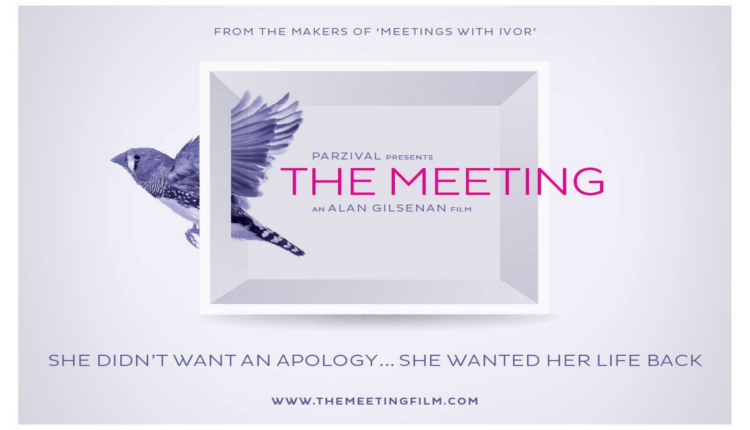Film Review | Ambitious Irish Drama The Meeting Soars High
There has never been a movie quite like The Meeting, a new Irish drama based on the true story of Ailbhe Griffith. At the age of 21, she was violently raped after disembarking from the Nitelink service in Dublin. Seeking closure, she confronted her attacker face-to-face nine years after. The film chronicles this meeting. However, while the assailant, Martin, is played by actor Terry O’Neill, Griffith portrays herself.
Helmed by Alan Gilsenan, an Irish filmmaker whose jumped between fiction (this year’s Unless starring Catherine Keener and Hannah Gross) and documentary (Meetings With Ivor), The Meeting blends the two modes of storytelling. It begins with a truly stunning Eisensteinian montage. Instead of showing the assault, Gilsenan zeroes in on the aftermath. In close-ups, he highlights to his audience words used in the Gardai’s report on the attack, the evidence, the area where it took place and the horrific injuries on Ailbhe’s body. In an age where audiences have grown desensitised – the rape of a young woman is common-place in detective dramas and documentaries – Gilsenan manages to evoke the terror of the situation in a way which reminds viewers that sexual violence affects real people and is perhaps the most traumatic event a person can go through.
Following this, the entire film is the titular meeting. Ailbhe and Martin – out on probation having served time in prison – agree to meet. With a mediator and person of support for each of the two present, Ailbhe describes the lasting affects of the attack – depression and an eating disorder – while Martin explains what led him to commit the atrocity.
Occasionally, Gilsenan’s attempts at trying to keep the bottle setting from feeling static comes across as gimmicky, particularly a long unbroken God’s eye shot in which we see Martin and his probation officer make small talk after Ailbhe leaves the room to get fresh air. However, for the most part, the director’s filmmaking manages to bring a strange sense of energy. Close-ups on ticking clocks and characters’ faces, as well as shots from the point of view of the characters – particularly Martin, who following a beating has been left with brain damage, making it difficult for him to stay focused – add an element of unknown tension.

Gilsenan’s script is delicate. While the film by no means forgives the assailant for his appalling actions, he is given depth. In a monologue – which is written and played very naturally – Martin discusses first seeing Ailbhe when he was drunk and angry at himself for not being able to meet a girl. He describes ‘going red’, telling Ailbhe: “I wanted you to feel as bad as I felt.” As his victim comes to realise, Martin is not some powerful monster. He is just a weak man, a revelation that helps her come to terms with what happened.
The element of the film that works best is Griffith playing herself. The fact that she is not a professional actress removes any sense of artificiality that would come from an actor playing this part. Yet, more importantly, she is a role model for those who have suffered sexual abuse. Despite all she has gone through, Griffith – standing across from her attacker – comes across as the strongest person in the room – repeatedly telling him she is not looking for an apology but a way to purge her negative emotions, stating: “The worse the life experience, the more the need to take something from it.” For all those that have suffered as she did, Griffith is proof that trauma inflicted can be overcome.

